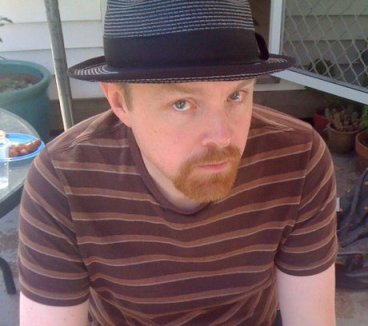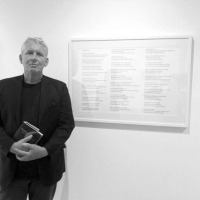Meet the locals: festival director Lisa D’onofrio

Lisa Donofrio teaching
Last year, after pretty much just landing in Castlemaine, I went along to the Castlemaine Children’s Literature Festival. The kids and I saw innovative puppet shows and powerful Sudanese storytelling and song. All the sessions were booked out. Sometimes kids’ programming (at other festivals) can be lazy… so it was great to see so many hands-on sessions.
This year, the program is even more expansive. It’s a wonderful initiative, with a carefully creative program aimed directly at children from a wide range of age groups. It starts at the end of this week. For Melbournites, it’s worth a trip down to explore the options during the school hols.
I first met festival director Lisa D’Onofrio at Castlemaine Word Mine, a regular gathering of local writers here. She hosted a reading I did with Simmone Howell and Ellie Marney on adult and YA fiction, and the crossovers between them.
I spoke to Lisa about the festival, that starts this weekend, and how she ended up landing in the Maine.
Why did you move to Castlemaine?
The short answer is we needed to settle somewhere fast, and Castlemaine had good schools, a train line and a rocking library. We also knew one person here!

Ajak Kwai launching last year’s festival
Why start a Children’s Literature Festival?
That’s a very good question, which I ask myself several times a day, especially in the lead up to the festival! When we first came to Australia around three and a half years ago, we did a bit of travelling. In Queensland I read about PL Travers, who wrote the Mary Poppins series, and I wanted to do something that celebrated Australian children’s literature, so it grew from there. I’ve got a background in literature/literacy development, and a long history of facilitating arts projects so it seemed a perfect fit.
The CCLF is a unique festival which focuses on children and young people as creative producers and active participants, which isn’t the usual model for festivals, where the children’s program seems like an add-on, or is purely schools-based. Selfishly, I also wanted my own kids to have access to local, cheap but quality, arts-based activities in the holidays!
What are some of the highlights of this year’s fest?
So many highlights! Most of the performers/facilitators are local, which is wonderful, and we were very lucky to have multi-award-winning author Melina Marchetta do some pre-festival workshops.
Johnny and Evie Danger developed their show Oceanic Daredevils for the festival, which has been booked out twice over.
I’m looking forward to Monsters in my Wardrobe, a production by Mark Penzac, which has had some input from Castlemaine North primary students, and the dance/word workshop with Thais Sansom on the Saturday, which I wish I was young enough to particpate in!
Monster Mash Up Rhyme Time is an annual favourite starring Jess Saunders, our library worker extraordinaire, which is always lovely — outside under the big tree in the beautiful surrounds of Buda.

Johnny and Evie Danger coming up at the CCLF
The Wordy Wonder Day will be a cracker, including a sound walk led by the poet Klare Lanson and Luca Sartori, who runs a cafe in town, singing Italian tunes!
You can check out the program here and book here.
Festival events will take place in Taradale, Fryerstown, Maldon and Newstead as well as Castlemaine.
WHAT ABOUT YOU? WHAT WAS YOUR FAVOURITE BOOK AS A CHILD?
Also check out:
- Top 5 Australian Children’s Books to Re-Read Until You Go Mad
- Meet the Locals: Castlemaine YA Author Simmone Howell


 Your new novel, ‘Girl Defective’, seems to be about the importance of preservation (records, St Kilda’s iconic buildings) and an embrace of the vintage. Do you collect things? Are you drawn to record stores and op shops?
Your new novel, ‘Girl Defective’, seems to be about the importance of preservation (records, St Kilda’s iconic buildings) and an embrace of the vintage. Do you collect things? Are you drawn to record stores and op shops?





